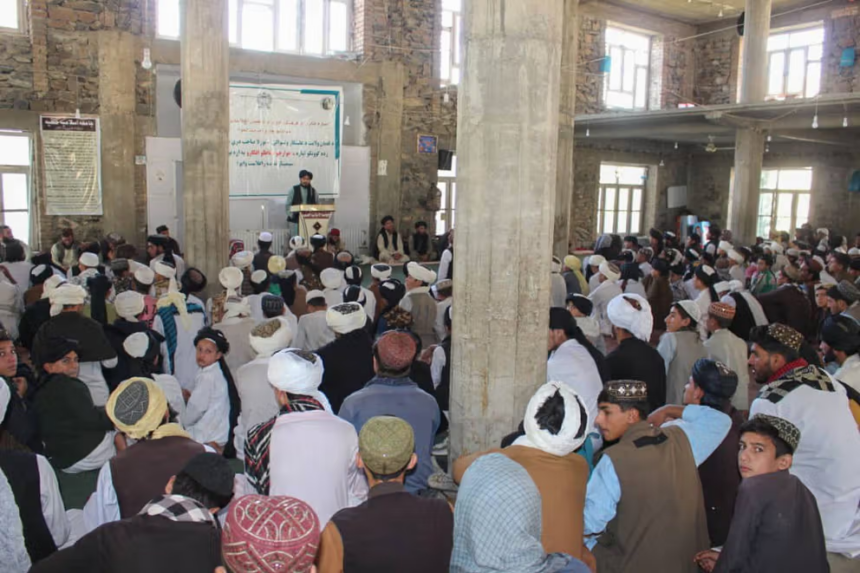RASC News Agency: The Taliban regime’s Ministry of Information and Culture has announced that roughly 400 school students and madrasa pupils in the Alingar district of Laghman province participated in what it described as a “competitive examination” centered on the Doha Agreement the controversial accord signed between the Taliban and the United States that paved the way for the group’s violent return to power in 2021.
According to a statement released on Thursday, October 23, the Taliban-controlled ministry claimed that the purpose of this event was to “increase awareness among students about the Sharia foundations of the Doha Agreement” and to “encourage the culture of reading and research.” Yet, observers and education experts argue that this so-called exam is part of a wider ideological campaign to reengineer the consciousness of Afghanistan’s youth and infuse them with the group’s extremist worldview under the deceptive pretext of religious education.
In a move clearly aimed at glorifying obedience to the Taliban, the ministry announced that the top three performers were rewarded with a laptop, a wristwatch, and cash prizes. Critics view these incentives as psychological tools designed to make ideological conformity appear both patriotic and materially rewarding, further entrenching the Taliban’s cult-like propaganda among impressionable young minds.
Officials from the Taliban’s cultural wing claimed that the competition was intended to help students understand the “similarities” between the Doha Agreement and the Treaty of Hudaybiyyah—a historic peace pact concluded fourteen centuries ago between the Prophet Muhammad and the Quraysh tribe of Mecca. The Taliban, however, offered no theological or scholarly justification for this comparison. Analysts describe the attempt as a cynical manipulation of Islamic history, meant to sanctify a political deal that dismantled Afghanistan’s republican institutions and handed the nation to an unaccountable clerical movement.
The Doha Agreement, signed in 2020, facilitated the withdrawal of U.S. and NATO forces from Afghanistan. What followed was not peace, but a swift and violent collapse of the former government, the disintegration of civil rights, and the rise of a theocratic regime that has since turned Afghanistan into one of the most repressive states in the world.
This latest “exam” in Laghman is not an isolated incident. The Taliban previously organized a similar test in Panjshir province involving more than 200 students, also centered on the Doha Agreement. In addition, the regime has held multiple Seerat al-Nabi (Life of the Prophet) exams across various provinces. Independent media investigations have revealed that many of these tests contain fabricated or ideologically skewed historical narratives designed to promote obedience to the Taliban and suppress critical thinking.
Education experts and civil society activists warn that these activities represent a calculated effort to weaponize the education system as a tool of indoctrination. Instead of nurturing inquiry, creativity, and analytical reasoning, the Taliban are systematically transforming schools and madrasas into centers of ideological conditioning—where religious symbolism is exploited to justify political control.
“By framing political obedience as religious duty, the Taliban are trying to erase the distinction between faith and fanaticism,” said one Kabul-based educator, speaking anonymously due to security concerns. “They want to breed a generation that cannot imagine Afghanistan beyond their theocratic vision.”
Under the Taliban, education has become both censored and exclusionary. Girls are banned from secondary and higher education, female teachers have been dismissed, and curricula across the country are being rewritten to align with the group’s extremist dogma. The so-called Doha Agreement exams therefore symbolize more than propaganda—they represent the regime’s broader mission to erase intellectual freedom and transform Afghanistan’s youth into instruments of ideological submission.
In a country already suffering from economic collapse, social repression, and international isolation, the Taliban’s manipulation of education underscores a dangerous reality: the regime is not merely governing Afghanistan it is systematically reprogramming its future.






